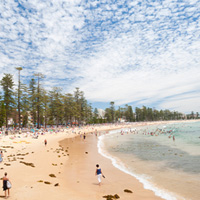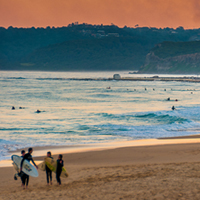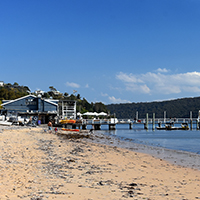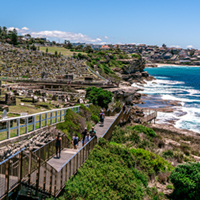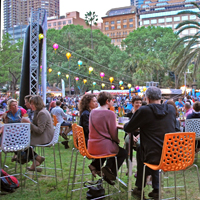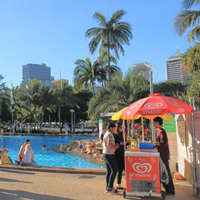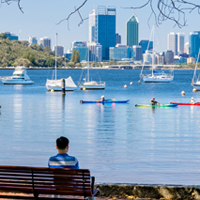Australia
Coastal BeachesAustralia is a diverse and vast country located in the Southern Hemisphere, comprising the mainland of the Australian continent, the island of Tasmania, and numerous smaller islands. It is the world's sixth-largest country by total area and is known for its unique wildlife, rich indigenous history, and iconic landmarks such as the Great Barrier Reef, the Sydney Opera House, and the Outback. The country's landscape varies from tropical rainforests in the northeast, arid deserts in the center, to mountain ranges in the southeast. Its major cities, including Sydney, Melbourne, Brisbane, and Perth, are known for their multicultural populations and vibrant cultural scenes. Australia's economy is prosperous, with significant contributions from sectors such as mining, agriculture, and tourism. The country is also known for its sporting culture, with popular sports including Australian Rules Football, cricket, and rugby. Australia's political system is a parliamentary democracy, and it maintains a stable and friendly international presence. The indigenous Aboriginal and Torres Strait Islander peoples have a profound impact on Australian culture and heritage, with their traditions and connection to the land being an integral part of the nation's identity. Australia's natural wonders, from the Great Barrier Reef to Uluru and the Daintree Rainforest, attract visitors from around the world, making tourism a significant industry. The country's education system is highly regarded, with several universities ranking among the best globally. Despite its remote location, Australia is well-connected globally and plays an active role in international affairs, particularly in the Asia-Pacific region.
 GeoBlue
GeoBlueGet Quote
GeoBlue is a trusted leader in international health insurance. Wherever your destination, GeoBlue can keep you and your family covered with the right health insurance. Get a GeoBlue Quote Today!
 GeoBlue
GeoBlueGeoBlue is a trusted leader in international health insurance. Wherever your destination, GeoBlue can keep you and your family covered with the right health insurance. Get a GeoBlue Quote Today!
Get Quote
Living in Australia
Best Places to Live in Australia
Visa & Residency
Obtaining a residency in Australia involves a multi-step process that can vary depending on the type of visa applied for. The Skilled Independent visa (subclass 189) is for skilled workers who are not sponsored by an employer, a state or territory, or a family member. Applicants must submit an Expression of Interest (EOI) through SkillSelect and be invited to apply. This visa uses a points-based system, where points are awarded for age, English language ability, skilled employment experience, and qualifications. The Employer Nomination Scheme (subclass 186) allows Australian employers to sponsor foreign nationals for permanent residency if they cannot fill a position with an Australian worker. This also involves a nomination process and an application for the visa itself. For those looking for temporary residency, the Working Holiday visa (subclass 417 for eligible countries and subclass 462 for others) is popular among young adults aged 18 to 30 (35 for some countries). It allows them to travel and work in Australia for up to a year, with the possibility of extending the visa by working in specific regional industries. The process can be complex and requires careful preparation of documents and evidence. Applicants must meet health and character requirements, and often a skills assessment is necessary. The difficulty of the process can vary greatly depending on individual circumstances, the accuracy of the application, and the specific requirements of the visa being applied for. It is not uncommon for applicants to seek assistance from migration agents or lawyers to navigate the process. Overall, while the process is thorough and can be competitive, especially for skilled visas, it is generally considered to be fair and systematic.
Healthcare in Australia
Australia boasts a robust system known as Medicare, which provides free or subsidized health services to Australian citizens, permanent residents, and some visitors from countries with reciprocal healthcare agreements. Medicare covers a range of services including hospital care, primary care, and prescription medications. Private healthcare exists alongside the public system, offering quicker access to specialists and elective surgeries, as well as private hospital rooms. While the quality of healthcare is generally high in both public and private sectors, there can be significant waiting times for certain public services. Expats and digital nomads can access public healthcare if they come from countries with reciprocal healthcare agreements; otherwise, they should secure private health insurance. The cost of private healthcare and insurance can be high, but it provides additional options and flexibility.
Cost of Living
The cost of living in Australia is considered high, with major cities like Sydney and Melbourne often ranking among the most expensive in the world. Housing, utilities, and transportation can be particularly costly, although salaries are also relatively high to compensate.
Weather
Australia experiences a variety of climates due to its large size. The northern part of the country has a tropical climate, with hot and humid summers and mild winters. The southern regions are more temperate, with warm to hot summers and cool winters. Central Australia is mostly arid or semi-arid, with very hot summers and mild to cool winters.
Educational System in Australia
The educational system in Australia is renowned for its high quality and is designed to provide students with a broad knowledge base and skill set. Education in Australia is compulsory between the ages of 6 and 16, typically covering primary and secondary schooling. The school year in Australia runs from late January or early February to December, with the year divided into four terms. Primary education starts with Kindergarten or Preparatory Year, followed by Years 1 to 6. Secondary education comprises Years 7 to 12. Students in Years 11 and 12 will often study for the Higher School Certificate (HSC) or a similar qualification, which is necessary for university entrance. Australian schools offer a balanced curriculum that includes English, mathematics, sciences, humanities, and arts, as well as physical education and technology. There is a strong emphasis on developing critical thinking and problem-solving skills. Schools in Australia can be public (government-funded) or private (independent or religious). The quality of education is consistently high, but private schools may offer smaller class sizes and additional extracurricular activities. Many schools also provide support for children with special needs and those for whom English is a second language. The Australian education system is inclusive and aims to cater to the diverse needs of its student population
Universities in Australia
The university system in Australia is internationally recognized for its excellence in education and research. There are 43 universities in Australia, with a mix of public and private institutions. Australian universities offer a wide range of courses and degrees, including bachelor's degrees, which typically take three to four years to complete, master's degrees, which usually require one to two years, and doctoral programs, which can take three to four years. The academic year for universities generally starts in March and ends in November, with some institutions offering a mid-year start in July. Australian universities are known for their strong research capabilities, innovative teaching methods, and state-of-the-art facilities. They attract a large number of international students, providing a diverse and multicultural learning environment. The application process for international students involves meeting academic requirements, demonstrating English language proficiency, and obtaining a student visa. Costs for international students can be significant, including tuition fees, living expenses, and health insurance. However, there are scholarships and financial aid options available to help offset these costs. Australian universities also offer support services for international students, such as orientation programs, academic assistance, and counseling services, to help them adjust to life in Australia and succeed in their studies
Copyright 1997-2025 Burlingame Interactive, Inc.

